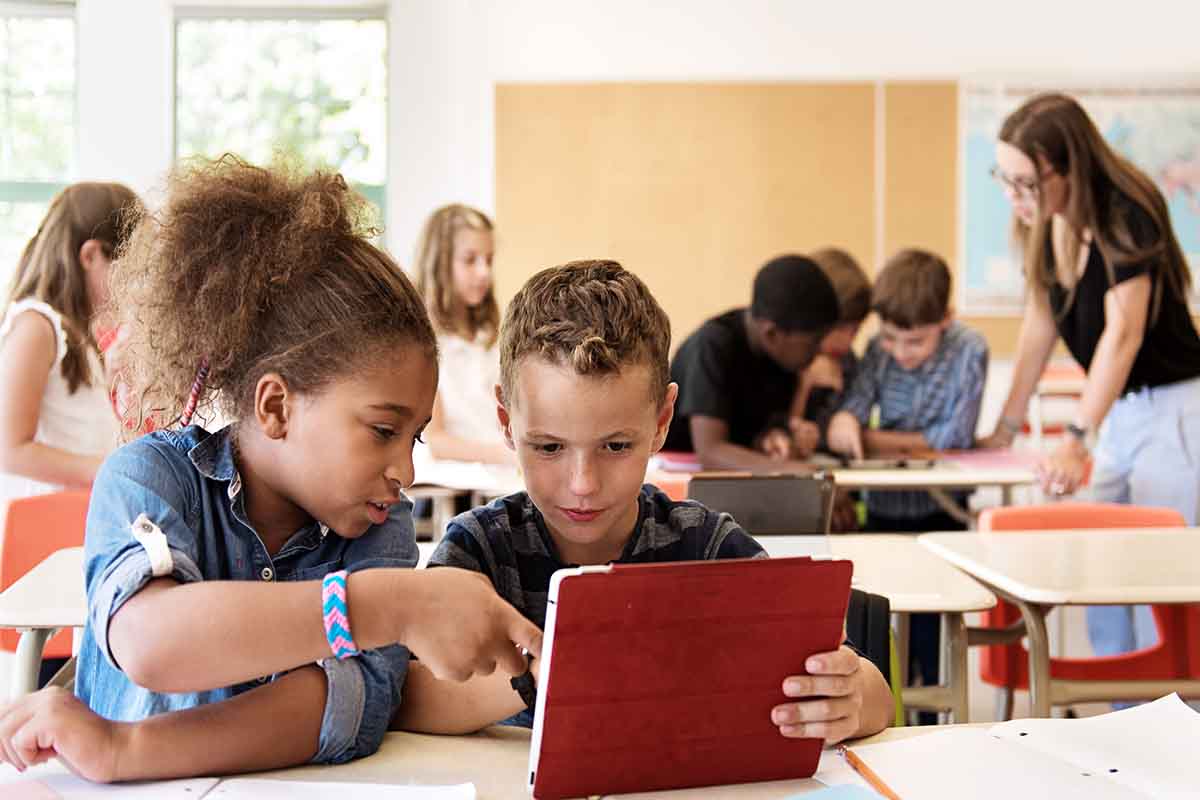Interpersonal Career Options: Multiple Intelligences

There are many inspirational people who have helped us understand the world around us, but only a few had as profound an impact as Howard Gardner, a psychologist and Harvard University instructor. Gardner has brought us a new understanding of the way humans learn through his well-known theory of multiple intelligence.
Gardner's idea of many intelligences provides people with a framework for understanding the different ways people learn. People typically excel in some of the areas of intelligence more than others. By being aware of one's strengths and understanding this theory, one can make smart decisions in life.
According to Northern Illinois University, this multiple intelligence theory includes nine types of intelligence.
Interpersonal intelligence represents the ability to understand and communicate with people.
This article will define interpersonal intelligence and describe how someone with high interpersonal intelligence can use their strong interpersonal skills and communication skills to pursue the right career path.
Related: 11 Life Skills Every Child Should Know
What is Multiple Intelligence Theory
The theory not only emphasizes the importance of recognizing the unique cognitive abilities of each individual but also strongly disagrees with the notion that an individual’s intelligence can be measured by a single test.
The word “intelligence” here refers to the various mental skills people have for processing information.
According to American Institute for Learning and Human Development, the nine intelligences in the theory of multiple intelligence include:
- Linguistic Intelligence
- Logical-Mathematical Intelligence
- Musical Intelligence
- Spatial Intelligence
- Bodily-Kinesthetic Intelligence
- Intrapersonal Intelligence
- Interpersonal Intelligence
- Naturalistic Intelligence
- Existential Intelligence
What Is Interpersonal Intelligence?
Interpersonal intelligence, also known as emotional intelligence, refers to the ability of a person to understand others and build relationships. Moreover, people with strong interpersonal skills are easily recognizable. They usually have a large social circle, love being around people, and can relate to others’ feelings and moods easily.
According to ResearchGate, interpersonal intelligence is usually stimulated at a very early age. Children learn how to respond to others’ emotions and desires by interacting with others at home and school. However, it is important to note that some people are more skilled at dealing with people than others. Nevertheless, it is worth knowing that those with poor interpersonal skills can develop strong social skills by regularly engaging in conversation and social interactions.
It is crucial to be able to differentiate between interpersonal intelligence and intrapersonal intelligence. Interpersonal intelligence is about understanding other people. Whereas, intrapersonal intelligence refers to understanding one’s self and inner feelings.
These two intelligences work together in giving a person the ability to communicate confidently with others.
What Are Interpersonal Skills?
A person with high interpersonal intelligence is a person with strong interpersonal skills. Interpersonal skills are the skills an individual relies on when interacting with others. They are universally known as social skills, soft skills, or people skills. Some examples of interpersonal skills include:
- Controlling your emotions and staying calm under pressure.
- Talking clearly and getting the message across effectively.
- Using effective body language and eye contact when talking to others.
- Being positive in negative situations.
- Negotiating with others effectively.
- Playing a role in conflict resolution by using problem-solving skills to reach the solution.
- Empathizing with others.
- Being good at teamwork by collaborating well with co-workers.
- Listening to others and giving them your full attention.
- Accepting feedback with a positive attitude.
- Writing clearly.
- Motivating others to be better.
- Being able to read others and assess their strengths.
- Fulfilling promises.
According to the University of Central Florida, an individual’s level of interpersonal intelligence can determine whether a person would be successful at a specific job. Those with low interpersonal intelligence should avoid jobs that involve a lot of social interaction.

30 Career Options for Individuals with Strong Interpersonal Skills
Job seekers that are great at verbal and non-verbal communication should consider interpersonal career options in their job search. To help in your job search, here is a list of interpersonal jobs that highly involve interpersonal communication.
- Administrator
- Manager
- School principal
- Personnel worker
- Arbitrator
- Sociologist
- Anthropologist
- Guidance Counselor
- Social Media Manager
- Restaurant Manager
- Hotel Manager
- Psychologist
- Customer service representative
- Childcare provider
- Translator
- Public relations person
- Nonprofit program coordinator
- Public speaker
- Executive Assistant
- Fitness coach or personal trainer
- Speech-language pathologist
- Travel agent
- Social director
- Human resources manager
- Life Coach
- Teacher
- Social Worker
- Recruiters
- Financial Advisor
- Tour guide
Practical Examples of Interpersonal Learning Styles in the Classroom
According to Gardner, students learn in different ways. Interpersonal learners learn best by interacting with others and participating in social gatherings. Teachers need to use different teaching methods in the classroom to give equal opportunities to all students.
The Open University states that interpersonal learners succeed when interpersonal learning styles are used in the classroom. Here are some practical examples of interpersonal learning activities that can help students with high interpersonal intelligence reach their utmost potential.

Group Work
Teachers should allow kids to work together to complete assignments. Group work should be regularly included in students’ routines. According to Carnegie Mellon University, students develop many important interpersonal skills during group work like effective communication, openness to feedback, and active listening which are valuable in any work environment.
Debates and Classroom Discussions
Teachers should encourage children to participate in debates and classroom discussions.
Peer Tutoring
Interpersonal learners should be encouraged to teach lessons to their peers. Peer tutoring requires a high level of interpersonal intelligence.
Social Gatherings
Teachers should introduce social learners to their school’s extracurricular classes and social clubs. Students with people skills would thrive in clubs such as the drama club or book club.
Peer Feedback
By allowing students to give each other feedback on their assignments, teachers would encourage students to develop strong communication skills.
Role-Playing
Social learners do not easily understand subjects by traditional teaching styles where the teacher uses traditional teaching strategies. According to the Department of Education, role play helps promote interpersonal skills like critical thinking, open-mindedness, and empathy among students. As a result, they encourage many schools to incorporate this teaching strategy into the process of learning.
5 Strategies for Improving Children’s Interpersonal Skills
The Department of Education states that children who have good social skills are more likely to succeed in school and their future employment. That is because employers do not only focus on technical skills in a resume but also on soft skills to complement the hard skills.
As a result, it is critical to assist children in developing excellent interpersonal skills. Here are five steps to improving your children’s interpersonal skills at home.
1. Find Out What Interests Them
The first step to getting your children to develop social skills is to get them around people. One way you can do this is by encouraging them to participate in a social club. However, it is vital to figure out what interests them. Children socialize more when they are doing something they like. They may find people who love the same things as they do.
2. Talk Regularly with Your Children

Talking with your children frequently, according to Gulf Regional Early Childhood Services, is the key to teaching them appropriate verbal communication and solid social skills. The more conversation they have, the better they get verbal and nonverbal communication. By talking to their children, parents can play a role in helping them develop important interpersonal skills like active listening and empathy.
3. Teach Them Conflict Resolution
Children tend to become quiet or withdrawn during challenging times. It is important to create a safe environment for your children to talk to you during these times. By building a strong relationship with your children, they would feel comfortable talking to you about anything.
According to the Centers for Disease Control and Prevention (CDC), to create a strong relationship with your children, you should practice active listening. You can do so by asking about their day frequently and making sure they know you are actually listening and caring about what they have to say.
You should teach them to confront their problems, and you may suggest a few solutions. However, make sure they choose the final solution, and that they are the ones that will carry it out. This helps children develop good problem-solving skills.
4. Value Your Child’s Opinions and Decisions
Listening to children’s opinions and allowing them to make decisions boosts their interpersonal skills by giving them confidence. The more your children feel respected, the more they will talk and express their ideas.
Children will occasionally make poor decisions; yet, this is crucial for the decision-making process. When they make the right choice, they would feel proud; when they make the wrong decision, they would learn from their mistakes. They would become independent and responsible.
5. Be a Role Model
According to Michigan State University, children learn by observing the behavior of others. If you want your children to have great interpersonal communication skills, you must set a good example. Make an effort to talk properly, demonstrate active listening, be respectful, and demonstrate empathy for others.
Today, cultural sensitivity has become a part of interpersonal intelligence. It is crucial to model openness toward other cultures and traditions. By doing so, children can create healthy connections with people from all around the world.
Using Interpersonal Skills Now and in the Workforce
All in all, interpersonal skills are essential life skills. Today, employers are looking for strong interpersonal skills in job applications. A healthy work environment requires employees who can communicate effectively and encourage a collaborative work environment.
Those with high interpersonal intelligence should consider interpersonal jobs which involve leadership, social work, and public speaking. It is crucial for parents and teachers to help children develop good interpersonal skills so that they can become effective communicators and leaders in the future. They can do this by demonstrating good social skills such as compassion and open-mindedness.

